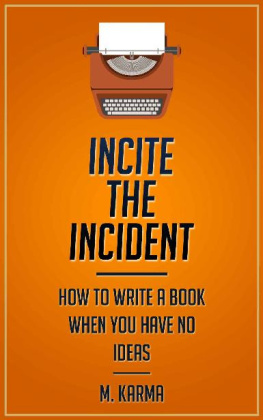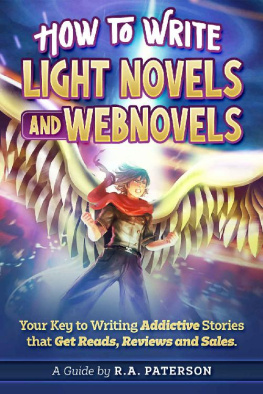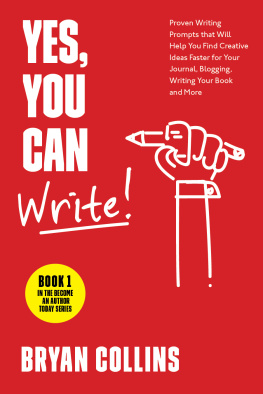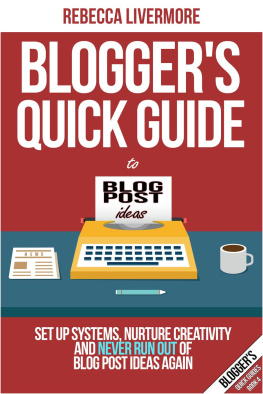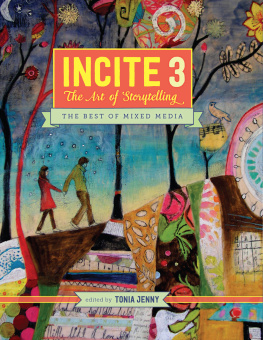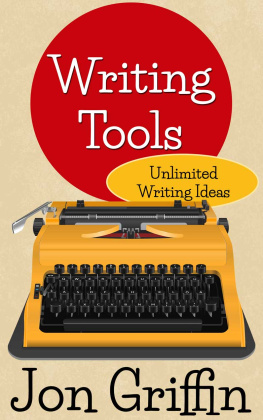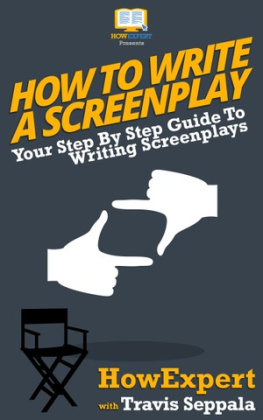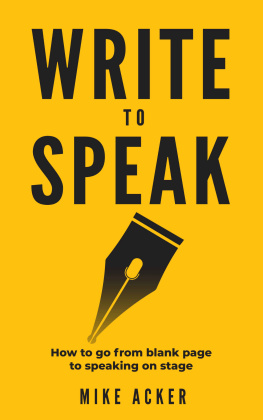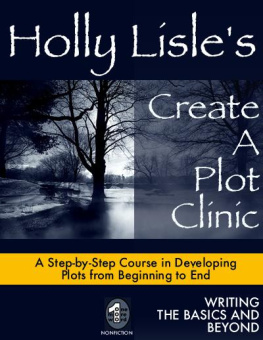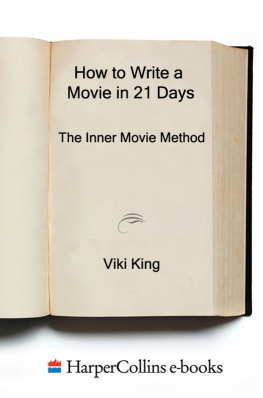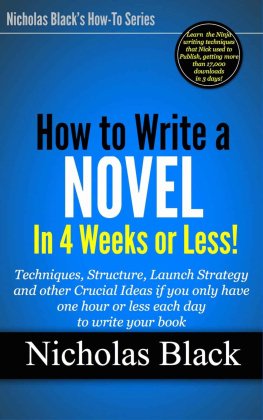Incite the Incident:
How to Write a Book When You Have No Ideas
By Mike Karma
2016 Mike Karma. All rights reserved.
Contents
Disclaimer:
What I've written here pertains to stories with the so-called classic structurethree acts, characters engaged in conflict with external forces of antagonism, a clear beginning, middle and end. If you are interested in more experimental writing, this book might not be for you.
Throughout the book, I will abbreviate inciting incident as II.
There are numerous spoilers in this book, so proceed with caution.
The Most Important Concept
If you are struggling to come up with ideas for a story, as many writers do, then this book is for you. If you have trouble coming up with characters, then this book is for you. If you have an idea for a story, begin to write it, and along the way you feel as if the plot is meandering and you are lost, then this book is for you.
As the screenwriter Michael Arndt ( Little Miss Sunshine, Toy Story 3, Star Wars: The Force Awakens) said:
A lot of times when a film doesn't work it seems like the problem is with the ending, but in fact the seeds of failure had been planted in the beginning.
The idea of an inciting incident is discussed in nearly every screenwriting book, but it barely gets a mention in those about writing novels. I believe it is the most important concept to understand when it comes to the composition of a story, because within the inciting incident we find our plot and our characters.
Robert McKee in his book Story defines an inciting incident as:
An event that radically upsets the balance of forces in the protagonist's life.
The protagonist has a certain way of life. She probably has problems. Maybe even serious ones. But she's dealing with them. She's living her usual life, going through her usual routines, the ups and downs of life. Then an event happens that affects her so much, it's hard for her to continue living as she did before. Before her stands a choicedeal with this event, which will lead her on a path of hardship and danger, or ignore it. Of course, your character must choose the path of danger, or you have no story.
To illustrate, here are some famous examples of inciting incidents:
SPOILERS AHEAD!
Romeo and Juliet :
Romeo seeing and falling in love with Juliet at the Capulet ball.
The choice is for Romeo to either honor the feud between the families and pursue a more appropriate love interest, or to marry Juliet at the risk of angering both families. The rest of the story is about the Romeo and Juliet devising a plan to get married and the effect of their relationship on their families and friends.
The Good, The Bad, and The Ugly:
Blondie and Tuco stumble upon a dying soldier who gives each of them a piece of information leading to a buried treasure.
At that point in the story Tuco is torturing Blondie by dragging him across a desert with no water, clearly intending to kill him. The choice for Tuco is to either ignore the treasure and continue with his torture, or to go after the gold. His greed gets the better of him, and he decides to form an uneasy partnership with Blondie. The rest of the story becomes about finding the treasure.
Crime and Punishment
Raskolnikov, a poor student, suddenly gets the overwhelming urge to kill an elderly pawn-broker and rob her.
The choice is clearRaskolnikov can, and should, ignore his insane urges, or he can go ahead with the murder. Which is what he does. The rest of the story is about Raskolnikov dealing with his guilt, and with the police, who begin to suspect him.
Inciting Incident Decoded
At its core, the inciting incident is either a problem or an opportunity that is handed to the protagonist, somewhere near the beginning of the story. Sometimes it is both a problem and an opportunity (as is the case in The Raiders of the Lost Ark , where Indiana Jones learns the general location of the greatest archaeological discovery in history, while at the same time learning that both his nemesis and the Nazis are very close to finding it).
Writing gurus advocate putting the inciting incident halfway through your first act, though there are great stories where it happens earlier or later.
Just because its a problem or an opportunity doesnt mean its an II. Countless stories first present the protagonist having typical ups and downs of life. The punishments and unfair treatment of Harry Potter by his family are not inciting incidents. They are simply the reality of his life. It's not until Harry finds out he's a wizard who's been accepted to Hogwarts do we have an inciting incident. The revelation radically upsets the balance of Harry's life, and he stands at crossroadsto continue his ordinary life or to accept the admission.
The event that happens to the protagonist cannot be something minor or have no relation to the rest of the story. The protagonist shouldn't simply wake up one day and decide she's going to move to California, with the rest of the story following an unrelated plot about her becoming an investment banker in Los Angeles. The plot and the protagonist must reflect the inciting incident and vice versa. If the story is about a woman becoming an investment banker in Los Angeles, the II could be the protagonist at her minimum-wage retail job impressing a middle-aged banker with her savant math skills, and subsequently getting a job offer in Los Angeles.
That is not to say that an II has to be epic in its proportion. If you're writing a love story, a brief look shared between two people could very well serve the purpose. Though from the outside it might appear minor, the key detail is that the event is not minor to the protagonist. If, after exchanging glances, your hero cannot get the other person out of their mind, you have yourself an inciting incident.
To summarize, an inciting incident is an event, positive, negative, or both, which happens to the protagonist, greatly upsetting the balance of their everyday life, forcing them to make a choice about their path in life. Remember the part about choice. It's going to be important.
The Myth of the Inciting Incident
I wanted to take a little time to discuss something I often find stated online. The myth that some inciting incidents take place before the story starts, that is, before page one. It shows a blatant misunderstanding of what the inciting incident is. Here are some examples I found online, taken from some of the top results on Google:
The Inciting Incident of Star Wars is Darth Vader's attack on Princess Leia's ship.
The event is already in progress as the movie starts. Think about it carefully. Does that sound right to you? I admit, it does kick off the story, and has relevance to everything that comes afterwards. But is it an inciting incident? I would argue that it is not, because if we were to point to any events of such nature as inciting incidents, then any event from the prequels could be taken as such.
The inciting incident of New Hope is Luke's Aunt and Uncle being killed by the Stormtroopers, because it gives Luke a choice. Princess Leia wasn't given a choice in the story. She is captured and put into a cell until Luke and others rescue her.
Once again, it's not an inciting incident until it presents the protagonist with a CHOICE .
In Sherlock Holmes, the inciting incident actually occurs before the movie started. If you recall, the movie starts with Holmes in pursuit of Lord Blackwood, trying to prevent him from sacrificing a young virgin.
In the universe of the movie, the hyper-logical Holmes dealing with such a problem is nothing more than just another case for him. The balance of his life is not upset until he is forced to deal with the possibly supernatural resurrection of Lord Blackwood, for which Holmes seems to have no answer (until we get to the end). As I've said before, the inciting incident dictates the story, and the story of the 2009 Sherlock Holmes movie is about him dealing with seemingly supernatural events caused by the undead Lord Blackwood. When the movie opens up, Holmes is already on the way to the antagonist's hideout. The story has presented the protagonist with no choice. He is already on the move. Only later, when it seems as if Blackwood came back to life does Holmes have a choiceignore the supernatural superstitions of people around him or investigate further.
Next page
